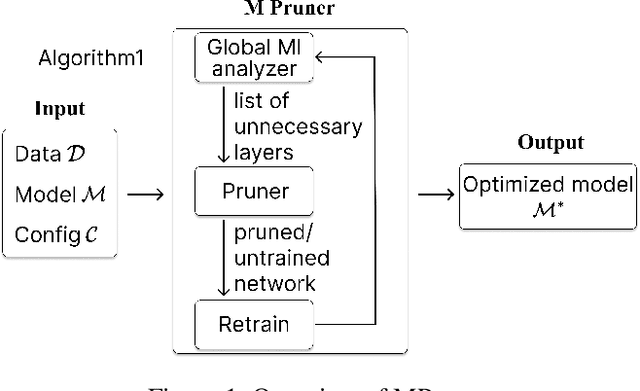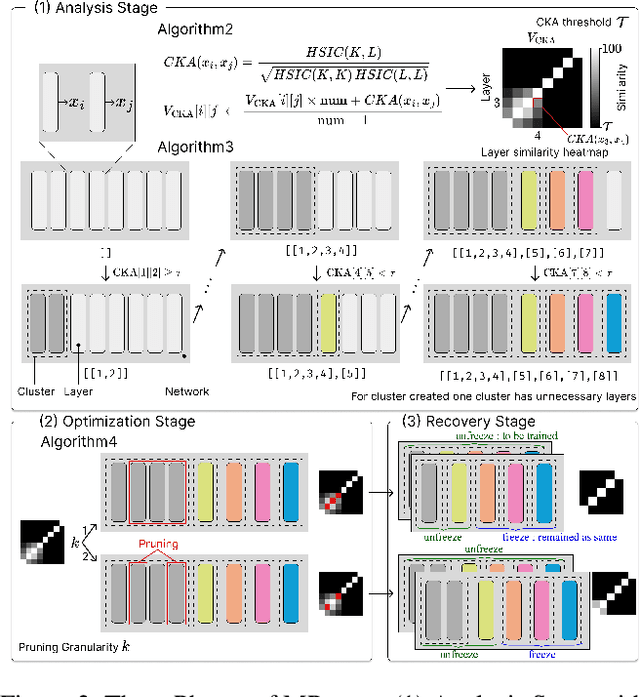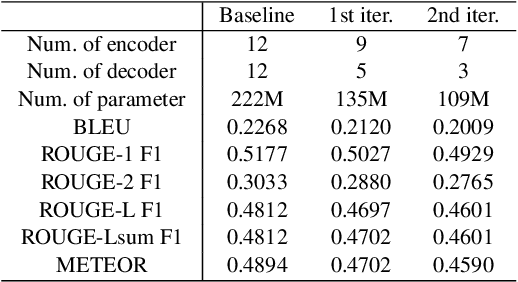Jieung Kim
MPruner: Optimizing Neural Network Size with CKA-Based Mutual Information Pruning
Aug 24, 2024



Abstract:Determining the optimal size of a neural network is critical, as it directly impacts runtime performance and memory usage. Pruning is a well-established model compression technique that reduces the size of neural networks while mathematically guaranteeing accuracy preservation. However, many recent pruning methods overlook the global contributions of individual model components, making it difficult to ensure that a pruned model meets the desired dataset and performance requirements. To address these challenges, we developed a new pruning algorithm, MPruner, that leverages mutual information through vector similarity. MPruner utilizes layer clustering with the Centered Kernel Alignment (CKA) similarity metric, allowing us to incorporate global information from the neural network for more precise and efficient layer-wise pruning. We evaluated MPruner across various architectures and configurations, demonstrating its versatility and providing practical guidelines. MPruner achieved up to a 50% reduction in parameters and memory usage for CNN and transformer-based models, with minimal to no loss in accuracy.
Towards Efficient Formal Verification of Spiking Neural Network
Aug 20, 2024



Abstract:Recently, AI research has primarily focused on large language models (LLMs), and increasing accuracy often involves scaling up and consuming more power. The power consumption of AI has become a significant societal issue; in this context, spiking neural networks (SNNs) offer a promising solution. SNNs operate event-driven, like the human brain, and compress information temporally. These characteristics allow SNNs to significantly reduce power consumption compared to perceptron-based artificial neural networks (ANNs), highlighting them as a next-generation neural network technology. However, societal concerns regarding AI go beyond power consumption, with the reliability of AI models being a global issue. For instance, adversarial attacks on AI models are a well-studied problem in the context of traditional neural networks. Despite their importance, the stability and property verification of SNNs remains in the early stages of research. Most SNN verification methods are time-consuming and barely scalable, making practical applications challenging. In this paper, we introduce temporal encoding to achieve practical performance in verifying the adversarial robustness of SNNs. We conduct a theoretical analysis of this approach and demonstrate its success in verifying SNNs at previously unmanageable scales. Our contribution advances SNN verification to a practical level, facilitating the safer application of SNNs.
 Add to Chrome
Add to Chrome Add to Firefox
Add to Firefox Add to Edge
Add to Edge